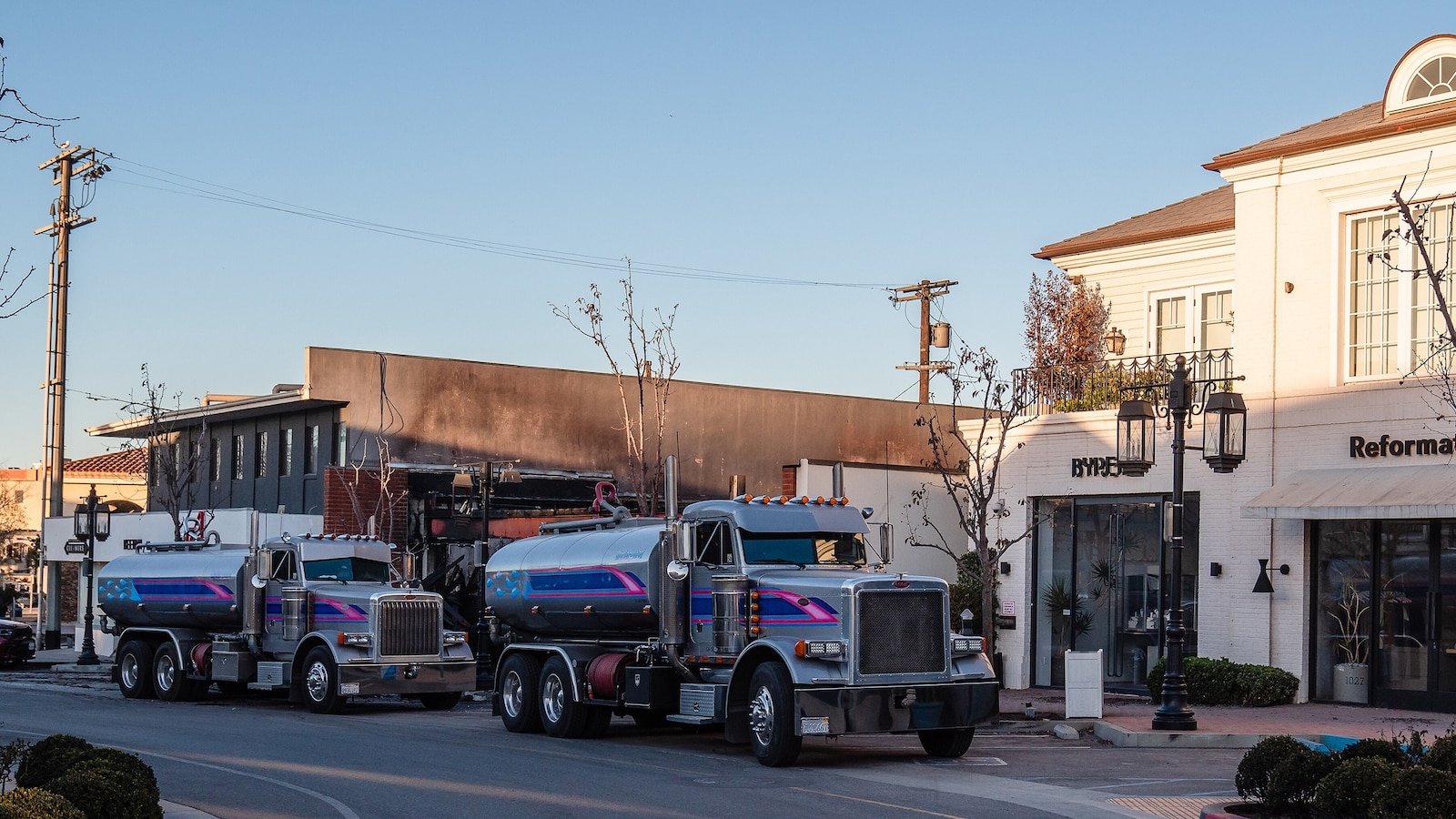The Controversial Rise of Private Firefighters in L.A.’s Blaze-Prone Landscape
As wildfires rage across Los Angeles, the emergence of private firefighting services is stirring up intense debate about their role in public safety and resource allocation. In a state that has been ravaged by increasingly severe wildfires, the rise of private firefighters offers a glimpse into a complex intersection of profit, protection, and public policy. This exploration delves into the implications of privatizing fire response in a climate of escalating natural disasters.
The Context of Wildfires in Los Angeles
Over the past few decades, California has witnessed an alarming uptick in the frequency and intensity of wildfires. Factors contributing to this trend include:
- Climate Change: Rising temperatures and prolonged droughts have created a tinderbox environment.
- Urban Development: Homes built in fire-prone areas increase vulnerability to wildfires.
- Forest Management: Historical practices have left forests overgrown and susceptible to severe fires.
These challenges have forced local governments to rethink their firefighting strategies, leading to the controversial rise of private firefighters in L.A.’s blaze-prone landscape.
The Emergence of Private Firefighting Services
Private firefighting companies have sprung up in response to the heightened risk of wildfires. These services often cater to wealthy homeowners and affluent communities who desire rapid response times and additional protection for their properties. In some cases, these private teams are hired to supplement public fire services, while in others, they operate independently.
Some notable private firefighting companies include:
- Wildfire Defense Systems: This company provides a range of services, including fire prevention and emergency response.
- Firebreak: Focused on creating defensible spaces around properties to mitigate fire risks.
- Private Firefighters of America: This firm offers 24/7 services, including preemptive fire mitigation and firefighting during active wildfires.
The Debate: Public Safety vs. Profit
The rise of private firefighters has ignited a heated debate surrounding public safety and the ethical implications of privatizing emergency services. Advocates argue that private firefighting can enhance safety by providing quicker responses and more resources. They contend that when public services are stretched thin, private companies fill a critical gap.
However, critics raise significant concerns:
- Equity Issues: Access to private firefighting services often correlates with wealth, leaving low-income communities at greater risk during wildfires.
- Resource Allocation: The emergence of private services could divert attention and resources away from public fire departments, potentially undermining their effectiveness.
- Regulation and Oversight: There are questions about the training and qualifications of private firefighters compared to their public counterparts.
This dichotomy raises fundamental questions about the role of government in providing safety and the implications of allowing profit-driven entities to take the lead in emergency response.
Legal and Regulatory Landscape
In California, firefighting services are regulated at both state and local levels. However, the legal framework surrounding private firefighting is still evolving. Key aspects include:
- Licensing Requirements: Private firefighting companies must adhere to state regulations, but enforcement varies widely.
- Insurance Regulations: Homeowners hiring private firefighters may face different insurance implications compared to those relying solely on public services.
- Coordination with Public Services: Private companies often need to coordinate with local fire departments during emergencies, raising questions about jurisdiction and command.
As the landscape of wildfire response continues to change, lawmakers and regulators are grappling with how best to integrate private firefighting into the existing framework.
Community Perspectives
The perspectives of Los Angeles residents on private firefighting services vary widely. In affluent neighborhoods, homeowners often express relief at having access to additional resources during wildfire season. Many report feeling safer knowing that they can hire private firefighters to protect their properties.
Conversely, residents in lower-income areas voice frustration and concern. They worry that the significant resources allocated to private firefighting could exacerbate existing inequalities in public safety. A lack of access to such services means that these communities are left at the mercy of overwhelmed public fire departments during catastrophic wildfire events.
Looking Ahead: The Future of Firefighting in California
The future of firefighting in Los Angeles and across California hinges on several key factors:
- Policy Changes: As the state continues to grapple with wildfire management, new legislation could shape the role of private firefighting services.
- Technological Advances: Innovations in firefighting technology, such as drones and satellite imaging, may alter how both public and private services operate.
- Community Engagement: Increasing public awareness and involvement in fire prevention strategies can help bridge gaps in safety and resource allocation.
Ultimately, the critical challenge will be finding a balance between leveraging private resources and ensuring that every community, regardless of wealth, has access to robust fire protection. As Los Angeles continues to face the threat of wildfires, the debate surrounding private firefighters will undoubtedly evolve, prompting ongoing discussions about the future of public safety in a changing climate.
Conclusion
The controversial rise of private firefighters in L.A.’s blaze-prone landscape reflects broader societal challenges surrounding climate change, resource allocation, and public safety. While these services offer potential benefits for affluent homeowners, they also raise pressing questions about equity and the role of government in emergency response. As California continues to confront the realities of wildfires, the implications of privatizing firefighting will remain at the forefront of public discourse, compelling us to rethink how we protect our communities in an increasingly uncertain world.
See more CNN Headline


